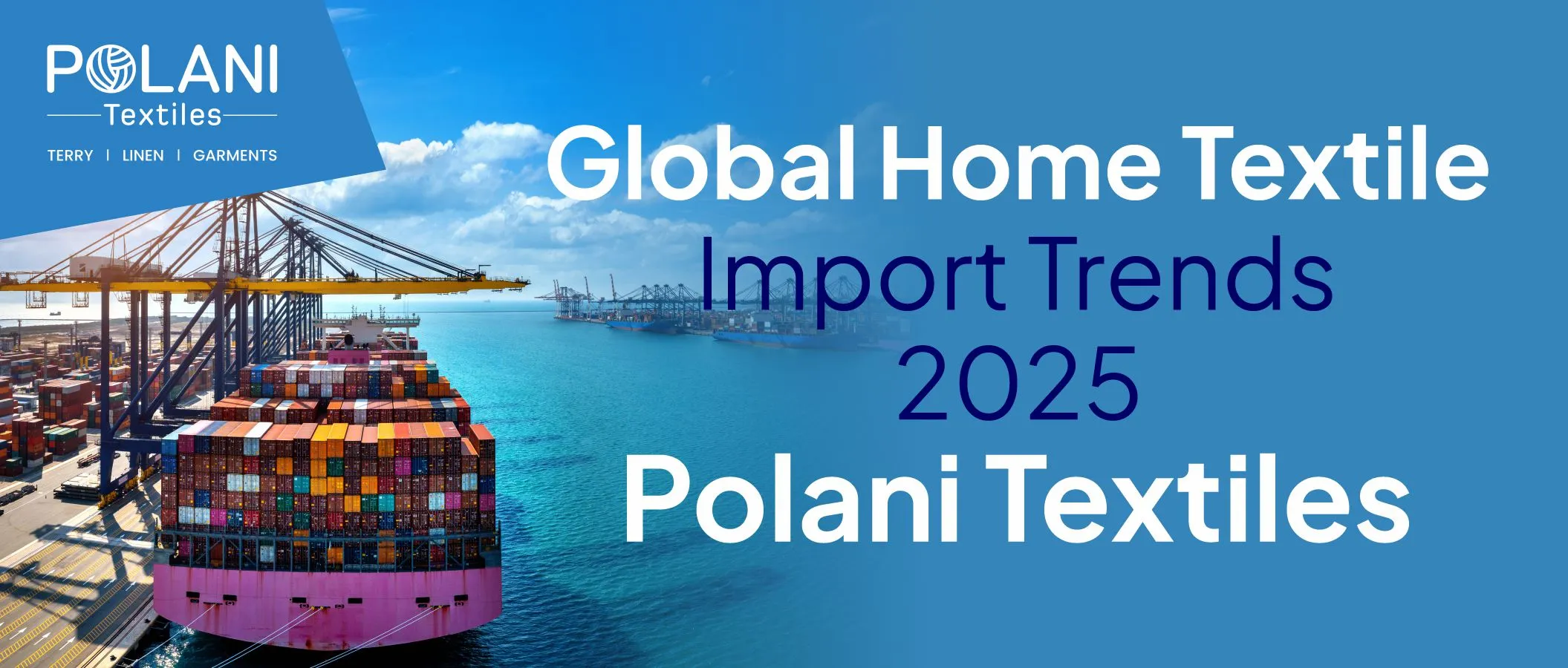Global import trends in the home textile industry are being shaped by sustainability, customization, and digital sourcing. Buyers are prioritizing eco-friendly materials, transparent supply chains, and versatile designs. Countries like Pakistan and Bangladesh continue to lead exports due to competitive pricing and high-quality cotton production. Importers are also shifting toward supplier partnerships that combine ethical manufacturing with innovation and reliability.
The Shifting Dynamics of Global Textile Trade
The home textile market is evolving as international buyers redefine what matters most, quality, traceability, and sustainability. Post-pandemic, import demand has diversified, with consumers investing more in comfort, durability, and ethically produced goods. Towels, bed linens, and bathrobes are no longer just utility products; they’re lifestyle statements. This shift has increased demand for certified organic cotton, recycled fibers, and low-impact dyes. Importers are now seeking suppliers who can provide transparency, flexible production, and consistent delivery, areas where Pakistan’s textile sector, including Polani Textiles, has gained a strong reputation.
Top Importing Regions and Their Preferences
Different markets have distinct preferences based on lifestyle, climate, and cultural values.
- North America emphasizes high-GSM towels, minimalistic designs, and OEKO-TEX certified materials.
- Europe focuses on eco-labels, organic production, and packaging sustainability.
- The Middle East demands premium textures, rich colors, and luxurious branding.
- Asia-Pacific markets value affordability and durability for mass-market retail.Understanding these variations allows exporters like Polani Textiles to customize products, from GSM level and weave type to packaging and labeling, to fit each market’s expectations.
Different markets have distinct preferences based on lifestyle, climate, and cultural values.
- North America emphasizes high-GSM towels, minimalistic designs, and OEKO-TEX certified materials.
- Europe focuses on eco-labels, organic production, and packaging sustainability.
- The Middle East demands premium textures, rich colors, and luxurious branding.
- Asia-Pacific markets value affordability and durability for mass-market retail.Understanding these variations allows exporters like Polani Textiles to customize products, from GSM level and weave type to packaging and labeling, to fit each market’s expectations.
Sustainability and Certification as Key Drivers
Sustainability has become a decisive factor for global textile importers. Buyers now prioritize suppliers with certifications such as OEKO-TEX, GOTS (Global Organic Textile Standard), and BCI (Better Cotton Initiative). These standards ensure ethical practices, chemical safety, and responsible sourcing. Importers also prefer suppliers who can demonstrate energy-efficient production and water conservation measures. At Polani Textiles, sustainability is built into every stage, from eco-friendly dyeing to waste management, ensuring our clients can market their products confidently under responsible sourcing labels.
Price Stability and Supply Chain Resilience
Global importers are also focusing on stable pricing and supplier reliability amid fluctuating raw material costs. Countries with vertically integrated textile industries, like Pakistan, have an advantage, as they manage spinning, weaving, dyeing, and finishing in-house. This control helps stabilize pricing, improve quality consistency, and reduce lead times. Polani Textiles’s end-to-end production model ensures competitive pricing without compromising quality, a key reason why many importers trust long-term partnerships with us.
Emerging Product Categories in Import Demand
Recent data indicates a surge in demand for eco-luxury towels, quick-dry bathrobes, and multi-purpose textiles. Lightweight, easy-to-care-for fabrics are gaining popularity, especially in urban markets. The hospitality and Airbnb sectors are driving imports for premium yet durable towels that balance style with performance. Personalized textile products, such as logo-embroidered or hotel-branded collections, are also trending upward. Polani Textiles responds to these evolving trends with customized solutions designed to help importers align with market shifts.
Frequently Asked Questions (FAQ)
Conclusion
Global import trends in the home textile industry reveal a clear shift toward sustainable, certified, and customized production. Importers now seek long-term supplier partnerships built on transparency, traceability, and consistent quality. As the demand for eco-conscious products grows, manufacturers who can merge craftsmanship with compliance will lead the future. Polani Textiles stands at the forefront of this transformation, blending tradition, technology, and trust to deliver products that meet global expectations and shape tomorrow’s textile trade.




